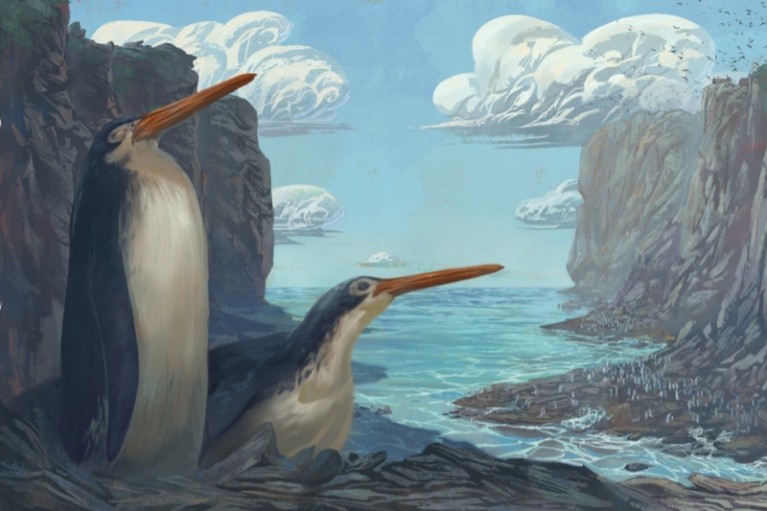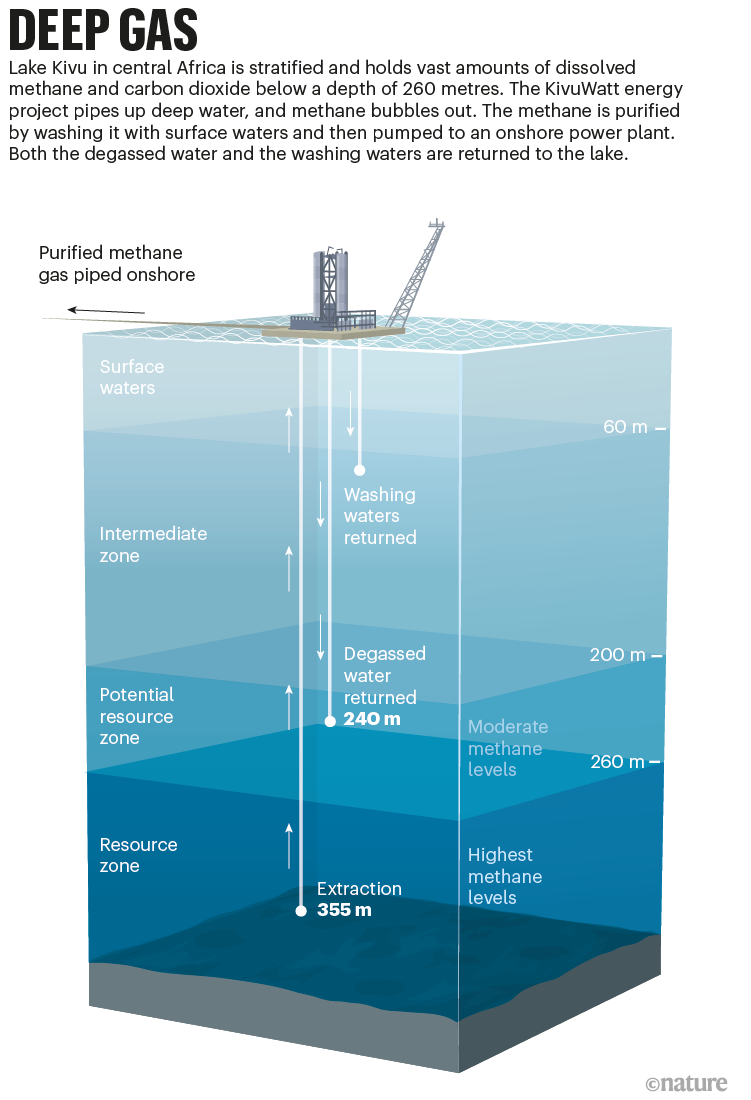Hello Nature readers, would you like to get this Briefing in your inbox free every day? Sign up here.

The giant penguin Kairuku waewaeroa (artist’s impression) had both a long bill and long legs.Credit: Simone Giovanardi
Kids’ club discovers giant penguin
In 2006, children from a junior naturalists’ club in New Zealand discovered the fossilized remains of a penguin the size of a ten-year-old child. Standing about 1.38 metres tall, the giant bird turns out to be a new species that was taller than other ancient giant penguins, as well as the tallest modern penguin, the 1.2-metre-tall emperor (Aptenodytes forsteri). Researchers named the species Kairuku waewaeroa; the second part of the name is Māori for ‘long legs’.
Washington Post | 3 min read & Nature Research Highlight | 2 min read (Nature paywall)
Reference: Journal of Vertebrate Paleontology paper
UK science minister has biotech background
Former biotechnology investor George Freeman is the United Kingdom’s ninth new science minister since 2010, following a reshuffle of Prime Minister Boris Johnson’s cabinet. “I think most scientists will be happy to have an enthusiast who values science for its commercial and economic potential,” says Kieron Flanagan, who studies science and policy. But it remains to be seen whether Freeman can fulfill the government’s ambitious research-spending target, at a time when the coronavirus pandemic has renewed focus on research.
Acquitted over China links, still unemployed
Faculty leaders at the University of Tennessee, Knoxville, are mounting a campaign to rehire a nanotechnology researcher who lost his job after the US government accused him of hiding his links to a university in China. Anming Hu, formerly a tenured professor, was acquitted of the charges by a judge on 9 September. One sticking point seems to be Hu’s immigration status — he is Canadian and his US work visa expired while he was suspended.
Features & opinion
A Nobel win on a shoestring
Pioneering radioastronomer Antony Hewish, who has died aged 97, had the ingenuity to realize what could be achieved by constructing a low-cost radio telescope with a small team of dedicated research students and assistants. Within the vibrant research environment at the Mullard Radio Astronomy Observatory near Cambridge, UK, discovery thrived, writes his colleague Malcolm Longair. Astrophysicist Jocelyn Bell, who was then Hewish’s research student, made the first detection of a strange scintillating radio source that they subsequently showed was the first identified pulsar. Hewish was awarded the 1974 Nobel Prize in Physics for his “decisive role” in the discovery, although Bell (later Bell Burnell) did not share the prize.
Mentors, beware survivorship bias
Those who give scientific- and academic-career advice should be wary of survivorship bias, write ecologists Dave Hemprich-Bennett and Dani Rabaiotti, and Emma Kennedy, a lecturer in learning and teaching. There are important lessons to be learnt from the stories of those who left science, as well as those who stayed. “When involved in mentoring conversations, make time to ask which ways forward would work for them, rather than just recommending your own path,” they write. “The fact that you overcame a barrier does not preclude it unfairly excluding many others.”
The world must work with Kabul
To avert the collapse of public-health programmes, leaders must engage with the Taliban in Afghanistan, argues Zulfiqar Bhutta. Bhutta is the founding director of the Centre of Excellence in Women and Child Health at the Aga Khan University in Karachi, Pakistan, which includes a teaching hospital in Kabul. With international development funds frozen, there is no money to pay health-care workers. The country’s stockpile of about three million doses of COVID-19 vaccines seems likely to expire. Bhutta argues that countries should clear the way for the Taliban to show a pragmatic, reformist face and honour its promises to women and children by formalizing their support for Afghanistan, and including provisions for health care in the agreements.
Infographic of the week

Credit: Nik Spencer/Nature
Picturesque Lake Kivu, nestled between the Democratic Republic of the Congo and Rwanda, holds huge quantities of dissolved gases that could erupt and kill millions of people. Scientists are scrambling to determine whether extracting the gases will make the lake safer — or potentially set off a ticking time bomb. (Nature | 13 min read)
See more of the week’s key infographics, selected by Nature’s news and art teams.
